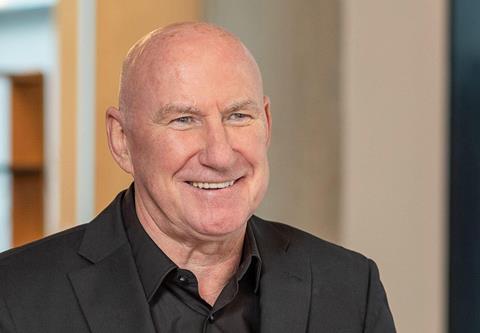As the election looms, Jack Pringle reflects on how, as a nation, we find ourselves with a lot to do and little money to do it with ÔÇô not least in terms of housing, plannning and sustainability

Standing in the rain, soaking, umbrella-less, Rishi Sunak called a July general election and surprised everyone, including many of his own MPs.
Any UK general election is a good moment to reflect, and then to look forward. I am the chair of a UK charity, RIBA, and so must be scrupulously non-political, particularly during election-period purdah. But I can review events and comment on what we need from the next government, whatever party leads it.

It has been quite a decade. Five prime ministers, Brexit, a pandemic with national lockdowns, war in Europe and the Middle East, national debt spiralling to £2.3tn, quantitative easing, inflation and high interest rates. Where does this leave us? With a lot to do and little money to do it with.
Where do we start? Perhaps with the remedies that also deliver to our GDP and to our economy
We need to build about 1.3 million homes to house our homeless, our existing building stock pours out carbon which must be addressed to meet our sustainability targets, the planning system is recognised to be dysfunctional by just about everyone, and the NHS consumes ever more alarming amounts of cash and performs worse and worse. Where do we start? Perhaps with the remedies that also deliver to our GDP and to our economy.
Sustainability: According to the Climate Change Committee (CCC) we need to decarbonise 29 million leaky, gas-guzzling or oil-fired homes all around our country that are uncomfortable to live in and cost a fortune to heat. We need a national retrofit strategy ÔÇô a long-term plan and investment programme for upgrading the energy efficiency of our housing stock, funded by a green bank. The reduction in fuel bills can pay for the work over time. Sounds familiar? This time we need to get it right by addressing incentives for home owners and building a simple funding and execution mechanism that householders, landlords and tenants will engage in. The resulting investment ÔÇô which the CCC estimates as ┬ú250bn over, say, a 10-year period ÔÇô would be a welcome nationwide boost to GDP.
>>Also read: Election focus 2024: policy tracker
>>Also read: Home Truths podcast: In conversation with Toby Lloyd, former No 10 adviser
More generally, the next government must set whole-life carbon measures for new buildings, aligned with targets in the forthcoming . This will help drive innovation and continue to embed the UK architecture and built environment sector as world-leading. A strong sector at home is key to a strong sector abroad, and there is much we can do through leadership internationally.
Housing: After defence of the realm, the economy and the NHS, housing our population must be any governmentÔÇÖs priority. We need 1.3 million more homes to house those on social housing waiting lists. Some of these will be new homes; others, particularly in the north, will be through retrofit, which fits neatly with a decarbonising strategy. The Local Government Association estimates that the NHS spends at least ┬ú2.5bn a year treating people with illnesses directly linked to living in cold, damp and dangerous conditions, and the GuardianÔÇÖs analysis (published on 28 January this year) estimates that English councils alone are spending ┬ú1.7bn a year on funding emergency accommodation, so some costs will be recouped.
Decade after decade, the private sector only delivers 150,000 to 170,000 homes a year. It just wonÔÇÖt do more. We need to return to public sector housing investment
How do we do it? Decade after decade, the private sector only delivers 150,000 to 170,000 homes a year. It just wonÔÇÖt do more. We need to return to public sector housing investment, which used to fund around 140,000 homes a year. We should do this using a mixed-tenure strategy, using up redundant public sector owned land and the grey belt, recycling the receipts from the sales for the next tranche of development. The RIBA has commissioned research that shows how dramatically this improves the affordability of building vital new social homes. Although this will be public sector investment, the private sector should be called upon to bring innovative delivery to this predictable pipeline of projects.
The planning system: everyone recognises our system is dysfunctional. A recent showed the average time for a major housing scheme to achieve detailed planning approval is eight years. from the Institute of Economic Affairs suggests that house prices could be over one-third lower without ÔÇťrestrictive planning rulesÔÇŁ. Infrastructure permissions are nigh impossible. On top of this, you have interference from national politicians. If we want to grow the economy and increase GDP, the planning system must be adequately resourced and radically reformed.
Last but certainly not least, delivering a high-quality public estate: schools, hospitals and the like. We need a new PFI to invest in the public estate. There is no money in the public coffers, but there is a vast amount of private wealth worldwide looking for guaranteed returns from investment. Nearly 20 years ago, Sunand Prasad and I campaigned to stop ÔÇťold-school PFIÔÇŁ and introduce ÔÇťsmart PFIÔÇŁ which would be better value for money and with better design outcomes. We won half the argument: PFI was abandoned, but a new, smarter version was not introduced. Well, we need it now.
This is an important time. There is a lot to do to ensure that our built environment serves each and every member of our country and delivers for our economy. What we do next is vital for our health, our wealth and our happiness.
Vote wisely.
Jack Pringle is managing director of Studio Pringle and chair of RIBA board

With the UK set for a general election on 4 July, the country is facing some serious problems.
Low growth, flatlining productivity, question marks over net zero funding and capability, skills shortages and a worsening housing crisis all amount to a daunting in-tray for the next government.
This yearÔÇÖs general election therefore has very high stakes for the built environment and the economy as a whole. For this reason,
║├╔ź¤╚╔˙TVÔÇÖs election coverage aims to help the industry understand the issues and amplify constructionÔÇÖs voice so that the parties hears it loud and clear.



























No comments yet